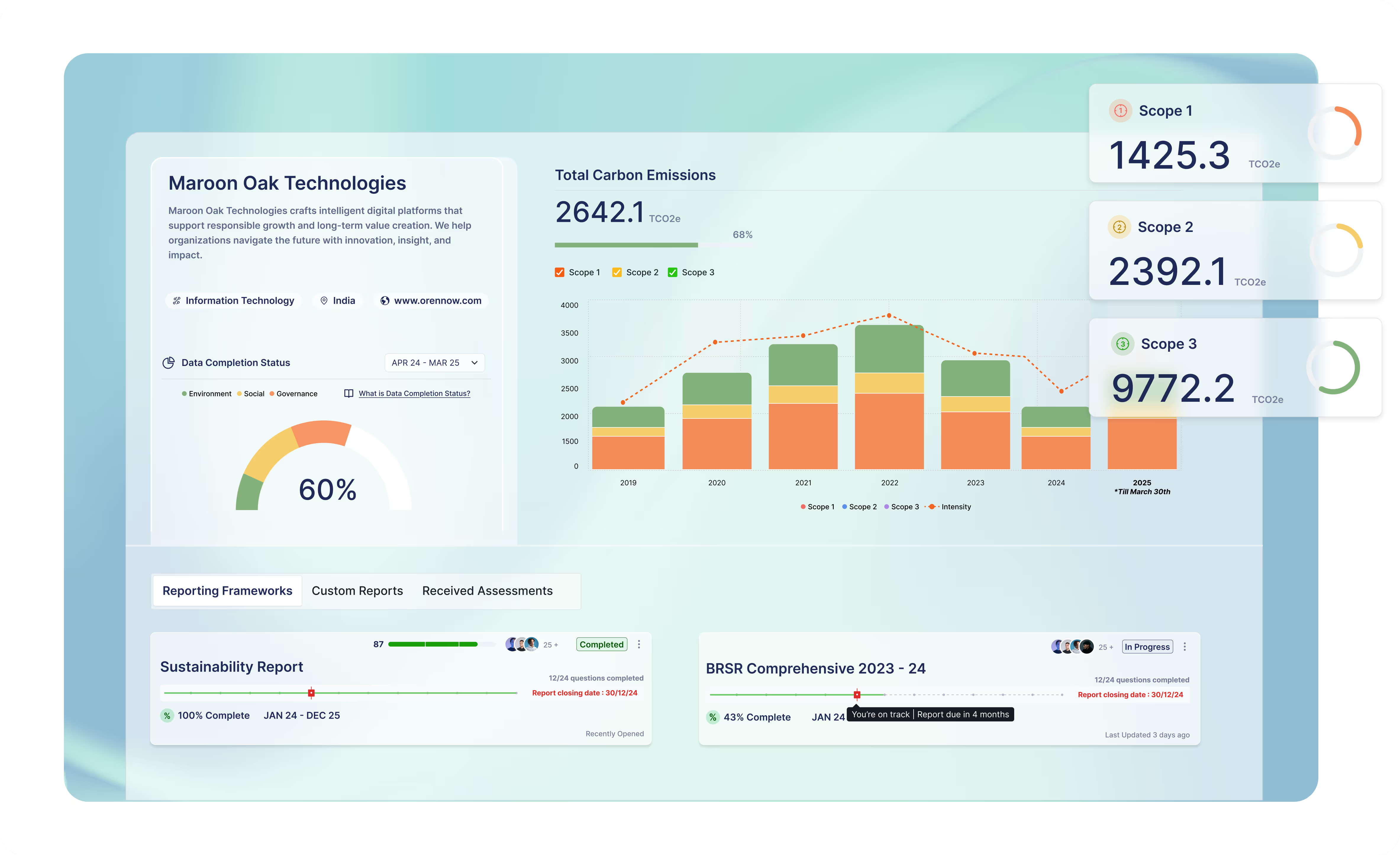Understanding ESG Reporting in Canada: A Comprehensive Guide

Introduction to ESG Reporting in Canada
In recent years, Canada has witnessed a significant shift towards sustainability and environmental responsibility. The emphasis on Environmental, Social, and Governance (ESG) reporting has grown as companies strive to meet increasing community and investor expectations. This guide delves into the critical aspects of ESG reporting in Canada, including the drivers behind it, disclosure requirements, and the various reporting frameworks available.
Key Drivers of ESG Reporting in Canadian Organisations
1. Rising Stakeholder and Investor Demands
Investors are increasingly prioritising companies with robust ESG strategies. Research indicates that 81% of Canadian investors now integrate ESG principles into their investment decisions, while 91% of banks actively monitor ESG compliance. This shift reflects a broader trend where capital providers favour companies committed to sustainability and ethical governance.
2. Regulatory Requirements
Although specific mandates for environmental and social disclosures are not yet fully established under Canadian Securities Legislation, recent guidelines from the Canadian Securities Administrators (CSA) have clarified expectations. Companies must disclose material ESG information in their continuous disclosure documents, which includes both qualitative and quantitative factors. This disclosure is critical for investors who rely on accurate and timely information to make informed decisions.
3. CEO Priorities
CEOs are increasingly focusing on ESG metrics, recognizing their importance in driving long-term growth. According to recent surveys, 55% of CEOs believe that ESG factors are essential for sustainable business development. This emphasis reflects a broader recognition of the strategic value of ESG considerations.
4. Employee Expectations
Employee attitudes towards ESG are shifting as well. A significant 51% of employees prefer to work for companies with strong ESG strategies, and 83% are more committed to employers that allow them to contribute to ESG initiatives. This shift highlights the growing importance of ESG in attracting and retaining talent.
5. Brand Reputation
Consumer behaviour is also influenced by ESG performance. One in three consumers will reconsider their brand choices based on sustainability reports. Furthermore, 70% of customers are willing to pay a premium for environmentally friendly products, underscoring the role of ESG in shaping brand reputation and consumer loyalty.

ESG Disclosure Requirements for Canadian Public Companies
1. Mandatory ESG Disclosure
Currently, Canadian Securities Administrators does not enforce specific environmental and social disclosure requirements. However, the CSA has issued guidelines to help issuers determine the necessary ESG information to include in their disclosure documents. Key considerations include:
- Materiality: Issuers must assess the materiality of information, considering its potential impact on investor decisions.
- Contextual Analysis: The timing and magnitude of the impact must be evaluated.
- Comprehensive Disclosure: Both qualitative and quantitative factors should be included.
Issuers are also expected to disclose material ESG information in the Management's Discussion and Analysis (MD&A) section of their reports and describe relevant environmental and social policies in their Annual Information Form (AIF).
2. Voluntary ESG Disclosure
Voluntary ESG reports play a crucial role in providing additional information to stakeholders but do not replace mandatory disclosures. The Canadian Coalition for Good Governance’s Directors E&S Guidebook provides recommendations for effective voluntary ESG reporting:
- Detailed Reporting: Address all relevant aspects of governance, strategy, and risk management with detailed, context-rich information.
- Clarity and Comparability: ESG metrics should be clear, measurable, and comparable across reporting periods.
- Framework Explanation: Companies must describe their chosen reporting framework and its rationale.
- Differentiation from Financial Reporting: Clearly outline how ESG reporting differs from traditional financial reporting.
ESG Reporting Frameworks in Canada
Several ESG reporting frameworks are popular among Canadian companies, each providing unique structures for sustainability reporting:
1. Global Reporting Initiative (GRI)
The GRI framework is widely adopted in Canada, with 43% of companies aligning their reports with GRI standards. This framework helps organisations assess their impacts on various sustainability dimensions, including the environment, economy, and human rights. The GRI system includes Universal Standards, Sector Standards, and Topic Standards.
2. United Nations Sustainable Development Goals (UN SDGs)
The UN SDGs are an internationally recognized framework that 21% of Canadian reports reference. Companies aligning with these goals are expected to support the Ten Principles of the UN Global Compact and the 17 SDGs, reflecting their commitment to global sustainability objectives.
3. Carbon Disclosure Project (CDP)
The CDP is a global voluntary initiative that helps companies report their climate change impacts and responses. This framework supports publicly traded companies in seeking investor support and provides guidance on effective climate-related disclosures.
4. Task Force on Climate-Related Financial Disclosures (TCFD)
Introduced in 2017, the TCFD recommendations guide organisations in providing comprehensive climate-related financial disclosures. The framework focuses on four key areas: governance, strategy, risk management, and metrics and targets. As of June 2019, 36 Canadian companies had adopted these recommendations for voluntary climate-related disclosures.
5. International Integrated Reporting Council (IIRC)
The IIRC framework emphasises integrated reporting, which communicates a company's strategy, governance, performance, and prospects concerning environmental sustainability. This approach aims to provide a holistic view of how ESG factors influence overall business performance.
Conclusion
ESG reporting in Canada has evolved significantly, driven by increasing investor demands, regulatory expectations, and the need for enhanced transparency. Canadian companies are adopting various reporting frameworks to align with global standards and address stakeholder concerns. By embracing ESG reporting, organisations not only meet regulatory requirements but also demonstrate their commitment to sustainability and ethical practices.
Understanding and implementing effective ESG reporting strategies can enhance a company's reputation, attract investment, and contribute to long-term growth. As the landscape of sustainability reporting continues to evolve, staying informed and compliant with relevant frameworks will be crucial for Canadian businesses.
Latest Blog Posts
Dive into our blog for insights on making your organization more sustainable.
Sustainability Simplified
Wherever you are in your sustainability journey, we help you advance with confidence.
Schedule a Call



.avif)

